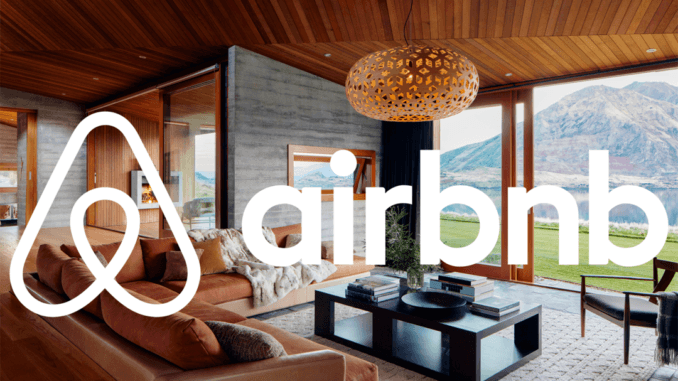Gabbi knew that real estate was the right career from the start. She is now dual licensed in both Kentucky and Ohio. She had her first sale within a month of getting licensed and hit her first million in volume within her first 6 months. She will have her real estate license for the rest of her life. Call her anytime if you have questions about becoming a real estate agent. She loves to share her passion for real estate with others!
Is Airbnb the Best New Side Hustle?

If you have been wanting to invest in real estate but don’t know where to start, hosting an Airbnb is a great option. There are other great options for getting into real estate investing as a beginner or as an experienced investor. I will list them below:
Beginner Real Estate Investment Options:
- Self-managed Airbnb
- Covert your primary residence into a rental
- Single-family rental
- Multi-family rental
- Vacation home rental
- REITs
Experienced Real Estate Investment Options:
- Commercial buildings
- Retail properties
- Apartment complex
- Industrial buildings
- Warehouses
- Land Development
- 10+ Airbnbs
Now let’s get into how to begin hosting your first Airbnb with 10 steps.
Step 1: Plan your business.
A clear plan is essential for success for any entrepreneur. It will help you map out specifics for your business and target gaps in knowledge that you can learn about before you begin.
Here are a few topics to consider when writing your Airbnb business plan:
- What’s your business name?
- Who is your target customer?
- What are the startup costs?
- What are your costs to maintain?
- How much can you change your customer?
Standard costs to account for:
- Guest service fee
- Renter service fee
- Cleaning service fee
- Guest Amenities
- Furnishing cost
There will be more costs associated with running an Airbnb. This is just to help you get started. Make sure that you analyze the monthly expenses of owning a property. If you need a refresher on what those expenses look like, read our article on what it costs to own a rental property here.
Step 2: Form a legal entity.
The most common business structure types are the sole proprietorship, partnership, limited liability company (LLC), and corporation. By establishing a legal business entity, you are protecting yourself and your family from liability in case your business is sued. You can go online to create your legal entity, call your attorney, or meet with your local bank provider.
Step 3: Register for taxes.
You will need to register for a variety of state and federal taxes before you can open your business. It’s easy and free to register for taxes. You will need to apply for an EIN. Here’s an online guide on how to do accomplish this step.
Step 4: Open a business bank account and credit card.
Using a separate business banking account and credit card will keep you organized. It will make filing your taxes easier and allow you to increase your credit amount. When your personal accounts are mixed with your business accounts you are putting those personal assets at risk. That’s why you will want to keep them separate.
Step 5: Set up business accounting.
Being able to record your various expenses and income is an essential part of owning a business. Make sure that you understand the financial responsibilities of managing Airbnb before you start. Keeping accurate account details will also simplify your annual tax filing.
Step 6: Obtain any necessary permits and licenses.
Failure to know any regulations, licenses, zoning, or permits that you are required to have may result in hefty fines or forced business closure. Make sure you do your research before you decide you are going to host property on Airbnb.
Step 7: Obtain business insurance.
Your business will also require insurance to operate safely and lawfully. Business insurance protects your company’s wellbeing in an event of a lawsuit or an unexpected issue. An example of this type of insurance would be General Liability Insurance. Call an attorney or your local insurance agent to see what insurance plan you would need.
Step 8: Create your brand and marketing plan.
Make sure that your brand is consistent across the board. Your brand should be on all your business paperwork and the title of your business entity. Create a brand that speaks to what you want to achieve. Use your brand to help your Airbnb stand out and create a label that you can use on all your marketing materials. Your marketing plan should show consumers who you are and what you are accomplishing. Consider creating a website to allow people to explore your business online.
Step 9: Register your account on Airbnb.
Airbnb’s website and app are going to be useful for you to book listings. It’s a great way for you to market your brand and property. Eventually, once you have more experience and more properties, you can explore other online vacation rental websites and expand your scope. Airbnb takes care of a lot of the advertising activity for a new host, which is why it’s a great place to start as a beginner.
Step 10: Create a separate email and phone number for your business.
Creating a separate phone number and email for your business is a great way to separate your personal life from your business. Make sure you be available when you are hosting a guest. You never want to miss a notification from a client because it could hurt your return business or online reviews. Having a separate business email will also keep your inbox clean. Don’t subscribe to any email subscriptions so that you can keep this inbox simple and ready to operate.
Starting a business sounds scary but it doesn’t have to be! The best thing you can do is learn as much as you can before you get started and stick to your business plan. Listen to podcasts about Airbnb’s while you are commuting from work. Join Facebook groups that have other hosts in your area. Meet with other long-term landlords so that you can compare business strategies. You are going to make mistakes but the best way to combat that is by sticking to your plan and having an emergency budget that you can use for an unforeseen expenses. We hope this helped! Be sure to check into the Career Corner for more real estate investing guides.
About the Author
Recent Posts






Let's Stay Connected
Want to join the prec community?
Join our mailing list!
All Rights Reserved | Perry Real Estate College | Site by Fix8



